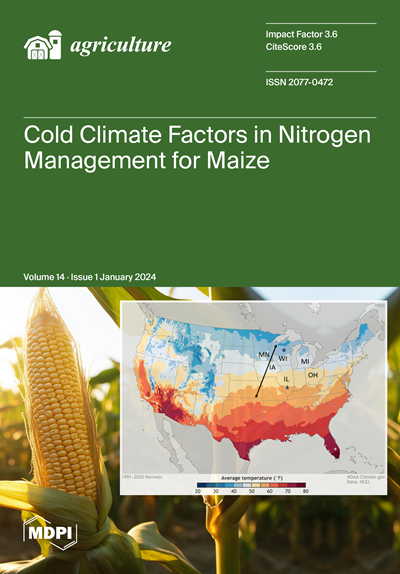葡萄牙农业食品部门弹性:使用结构性断裂应用于国际贸易的分析
IF 3.6
2区 农林科学
Q1 AGRONOMY
引用次数: 0
摘要
在过去二十年中,葡萄牙遭受了两次全球危机的影响,即金融危机和2019冠状病毒病大流行,以及共同农业政策改革。这些危机对葡萄牙经济产生了巨大影响,但目前还完全不清楚它们是如何影响葡萄牙农业食品部门的动态的。本研究的目的是分析该部门对欧洲和全球袜子的弹性,测试对国际贸易的影响。2000年至2020年的动植物产品和食品工业的进出口贸易系列采用了葡萄牙统计局的二手数据。该方法基于结构断裂模型、稳定性分析和结构断裂测试。在贸易序列中观察到一些波动,特别是在进口方面,在年份、贸易部门或进出口贸易之间没有一致性。就出口而言,不同部门在不同年份出现了一两次结构性断裂。最相关的动态发生在主权债务危机之后。结论是,共同农业政策改革和全球危机似乎没有在葡萄牙国际农产品贸易中引起新的相关动态。这显示了该行业对外部冲击的抵御能力。本文章由计算机程序翻译,如有差异,请以英文原文为准。
Portuguese Agrifood Sector Resilience: An Analysis Using Structural Breaks Applied to International Trade
In the last two decades, Portugal suffered the effects of two global crises, the financial crisis and the COVID-19 pandemic, as well as the Common Agriculture Policy reforms. These crises had a great impact on the Portuguese economy, but it is completely unclear how they affected the dynamics of the Portuguese agrifood sector. This study’s objective is to analyze the resilience of this sector to European and global socks, testing the effects on international trade. Secondary data from the Portuguese Statistics Institute were used for the exports and imports trade series of animal and vegetable products and food industries from 2000 to 2020. The methodology was based on the structural xtbreak model, stability analysis, and tests for structural breaks. Some volatility was observed in the trade series, particularly in imports, without consistency among years, trade sectors, or imports versus exports trade. In the case of exports, one or two structural breaks in the different sectors occurred in different years. The most relevant dynamics occurred after the sovereign debt crisis. It was concluded that CAP reforms and global crises seem to not have caused new relevant dynamics in the Portuguese international agrifood trade. This revealed the resilience of the sector to external shocks.
求助全文
通过发布文献求助,成功后即可免费获取论文全文。
去求助
来源期刊

Agriculture-Basel
Agricultural and Biological Sciences-Food Science
CiteScore
4.90
自引率
13.90%
发文量
1793
审稿时长
11 weeks
期刊介绍:
Agriculture (ISSN 2077-0472) is an international and cross-disciplinary scholarly and scientific open access journal on the science of cultivating the soil, growing, harvesting crops, and raising livestock. We will aim to look at production, processing, marketing and use of foods, fibers, plants and animals. The journal Agriculturewill publish reviews, regular research papers, communications and short notes, and there is no restriction on the length of the papers. Our aim is to encourage scientists to publish their experimental and theoretical research in as much detail as possible. Full experimental and/or methodical details must be provided for research articles.
 求助内容:
求助内容: 应助结果提醒方式:
应助结果提醒方式:


